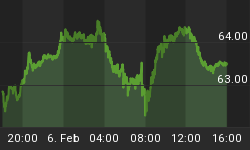April 15th, our national tax day, comes this year just as Congress prepares to pass the 2007 federal budget. If you think paying taxes was painful this year, I've got some bad news: the new budget is a grotesque illustration of everything wrong with the federal government. At $2.7 trillion, it's the largest budget in U.S. history by a long shot. Like it or not, the pressure to raise your taxes will be enormous in coming years no matter who controls Congress. The amount of money government spends, borrows, and prints simply cannot be sustained.
For most people, their income tax return represents their most meaningful interaction with the federal government. It requires them to confess their actions over the past year to the IRS in excruciating detail. It's an annual ritual guaranteed to elicit strong feelings of disgust. Thanks to the deception of income tax withholding, however, some people actually look forward to tax time and a much-anticipated refund. Imagine how quickly Americans would demand lower taxes and spending if they had to write the federal government a check each month.
Most people understandably want a simpler income tax system, but it's useless to discuss tax reform without spending reform. Who wants a 40% flat tax? Who wants a national sales tax if it adds 50% to the retail price of everything we buy? In other words, why change the tax structure if spending stays the same? Once we accept that Congress needs $2.7 trillion from us, the only question is how it will be collected. The current answer is the labyrinthine tax code, which pits taxpayers against each other in a political scramble to make sure the other guy pays. The truth is that Congress does not need $2.7 trillion, or anything close to it, to fund the proper constitutional functions of the federal government.
The only tax reform needed is to lower or abolish existing taxes. When reform proposals seem complicated, the reason is simple: they obscure their true nature as schemes to shift the tax burden around. It's not who pays or how we pay; it's how much we pay.
The real enemy of tax reform is the spending culture in Washington. Let me repeat: we will never have tax reform in this country until Congress changes its spending habits. The reform rhetoric, regardless of which party it comes from, never changes the reality that federal spending grows every year. Congress spent $2.4 trillion in the last Bush budget; the new budget proposes to spend $2.7 trillion. The same unconstitutional agencies are funded, the same unwise programs are perpetuated, but at higher levels than last year. The previous budget serves merely as a baseline; the only question in any given year is how much spending will increase. Once created, no spending program is ever eliminated. The cycle goes on and on, with different administrations and different people in Congress.
But could America exist without an income tax? The idea seems radical, yet in truth America did just fine without a federal income tax for the first 126 years of her history. Prior to 1913, the government operated with revenues raised through tariffs, excise taxes, and property taxes, without ever touching a worker's paycheck. Even today, individual income taxes account for only approximately one-third of federal revenue. Eliminating one-third of the proposed 2007 budget would still leave federal spending at roughly $1.8 trillion -- a sum greater than the budget just 6 years ago in 2000! Does anyone seriously believe we could not find ways to cut spending back to 2000 levels? Perhaps the idea of an America without an income tax is not so radical after all. It's something to think about this week as we approach April 15th.















